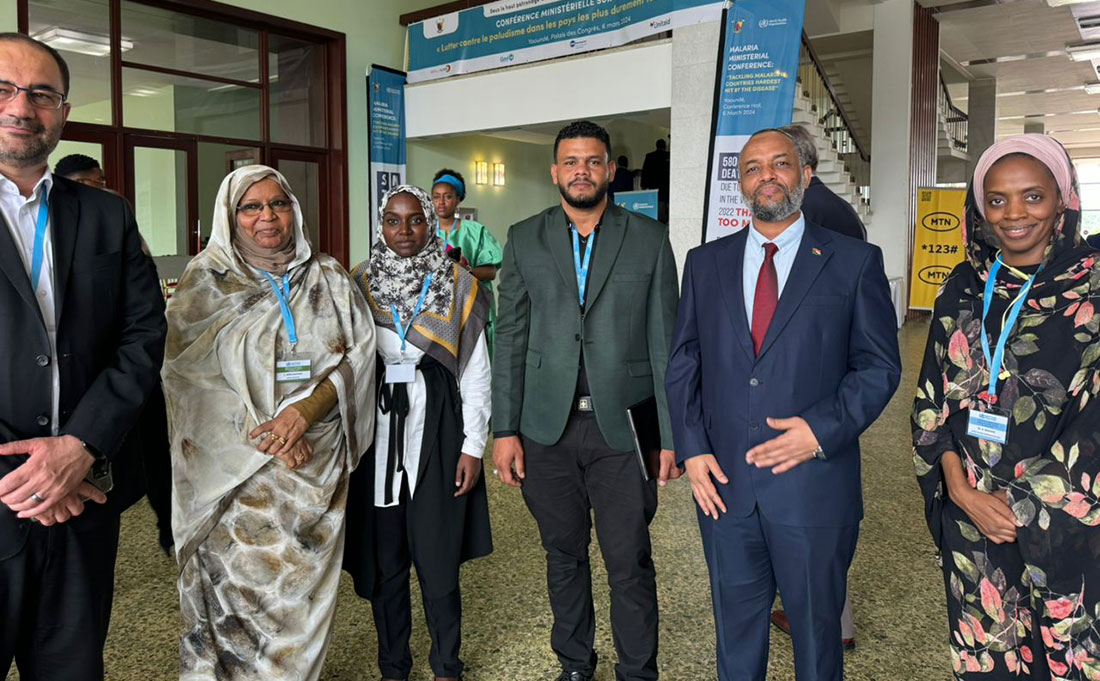
7 March 2024 – Sudan’s participation in the Malaria Ministerial Conference in Yaoundé, Cameroon, on 6 March 2024 affirms the country’s strong political commitment to prioritize malaria control. Sudan was represented at the event by the H.E Federal Minister of Health Dr. Heitham Awadalla and a delegation from the National Malaria Control Programme Dr.Khansa Elsoni and Integrated Vector Control Department Mr.Hamza Sami.
To speed up progress in malaria control, and translate the stated political commitment into tangible actions, Sudan adopted the High Burden to High Impact (HBHI) approach, a WHO initiative, in April 2022. It is the first country in the WHO East Mediterranean Region to follow this approach.
The HBHI approach enables those countries most affected by malaria to reach the groups and areas most vulnerable to malaria. It does this by adapting interventions to the needs of each locality based on the best available data and national disease contexts. This ensures the most efficient use of resources to achieve the desired impact and reach the planned malaria control results.
The most important pillar of the HBHI approach is a strong commitment to prioritize malaria on the political agenda. Since Sudan adopted this approach, the Federal Ministry of Health has been leading all possible efforts to provide the necessary resources and support to implement malaria control strategies. This work has been led by the National Malaria Control Programme and Integrated Vector Control Department.
The Malaria Ministerial Conference brought together most of the malaria stakeholders and donors involved in malaria elimination on the African continent. They convened to assess progress, consider how to address challenges, and reach collective agreement on key measures to respond to malaria mortality rates. They also sought to strengthen the political and financial commitment of participating countries to speed up efforts to achieve the goals of the Global Technical Strategy for malaria by 2030.
The Federal Minister of Health took part in the event despite the ongoing war in Sudan, various competing priorities and the harsh conditions involved in travelling out of Sudan at this time. His presence demonstrates Sudan’s commitment to reduce its burden of malaria and strengthens the country’s long-standing role in regional efforts to fight the disease.








